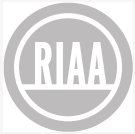Source:
Forexheaven Not that long ago, we reviewed Easy Forex – a new kind of broker that broke the mould by making it simple and quick to open an account. The fact you could fund it with a credit card or PayPal was pretty radical.
Well what do you know – another broker is on the scene, also promising quick sign up. And we're really excited about this one – because they're doing it better! They're called Marketiva, and we've taken a closer look.
Trade For Free?
We thought that Easy's account opening minimum of $5 was pretty impressive. Hard to beat, even. However, Marketiva have beaten it.
You can open an account with...absolutely nothing. In fact, when you sign up for an account, they actually give you $5 credit.
Combined with their 1% margin, you can quite reasonably start live trading with no money down. We can't think of another broker where that's possible.
If you want to add funds to your account, you can do so by good old wire transfer, as well as using eGold and eBullion, which is different. Alas, no PayPal at this time.
Aside from the obvious advantage of being given free money in your new account, the sign up procedure is really very quick indeed. It takes just a couple of minutes to get your account up and running, and then you're ready to download the software.
Gorgeous Platform
Forgive me if I get overexcited here, but the thing is, the trading software supplied by Marketiva is...gorgeous!
I know that looks aren't everything, but well designed trading software does make the job easier. Forex brokers (all brokers in fact) aren't exactly known for producing very user friendly software, which makes this trading station all the more surprising.
When you start it up, the screen is divided into four areas:
 Rates and News:
Rates and News: This is the market data area with live streaming quotes.
Marketiva's spreads are average, but nothing special. Between 3 – 5 pips seems to be normal for most pairs. All of the usual currency pairs are available.
Clicking on the "Latest News" tab brings up a live news feed. You can choose the type of news you want displayed here, with special features, technical and fundamental analysis all offered along with the usual forex news.
Charting and Discussion: The charts are lovely and clear, but you can only have one open at a time. Still, the platform makes it easy to create new charts and save them along with your favourite indicators etc, and then switch between them. You can choose time scales from 5 minutes to monthly, and all the indicators and options we've come to expect are present.
Selecting the "Discussions" tab brings up an integrated Live Chat system – a great idea – but perhaps a distraction for newbies. Still, being hidden in a tab, you don't have to watch it. There are a ton of chat rooms available, including local rooms for most countries. You shouldn't have any problem at all finding someone to talk to who speaks your language - both literally and in the financial sense! Technical and account support are also provided through the chat system.
Portfolio / Signals / Alerts: Here you can see your account balances. Hang on, did I say balances in the plural? I certainly did – because
Marketiva gives you a Virtual $10,000 account to play with alongside your live account.
This is an excellent idea – there's no need to log into a separate demo system to test out new strategies or paper trade ideas. You can trade live and demo accounts at the same time!
The Signals tab in this quarter of the screen, is where you can get trading signals from free and commercial systems. A couple of systems are available free, and paid for ones can be added as well.
The Alerts tab brings up market news items. Very handy for trading the news.
Order Management: The final quarter is where you place and manage orders. Market, Stop and Limit orders are all supported, as are Good Till Date, Good Till Cancelled, and Immediate orders.
Orders can also be entered by clicking on a live quote. The order ticket allows you to select whether you want the order to be routed through your Live account or the Virtual one.
Finally the
Account Center tab is where you can deposit and withdraw funds.
The Forex Angels Say: With live and virtual trading in the same platform, and free money credited to your account when you sign up,
Marketiva has got an outstanding offer. Their brilliantly integrated software makes getting started a breeze. Everything you need is in one easy to use package. It's smooth, and it works. We definitely recommend taking a look!
Click here to register



